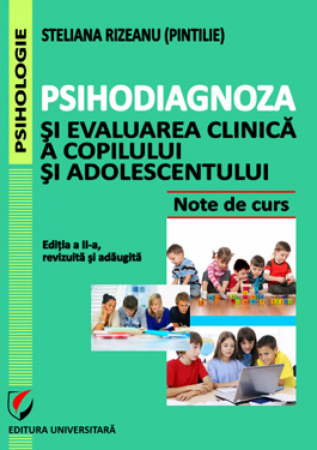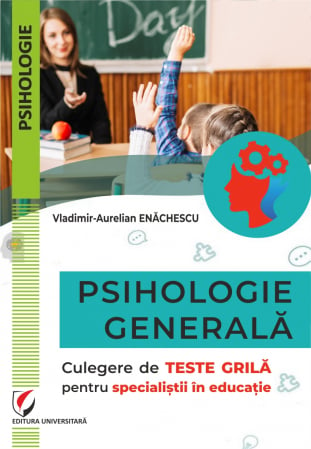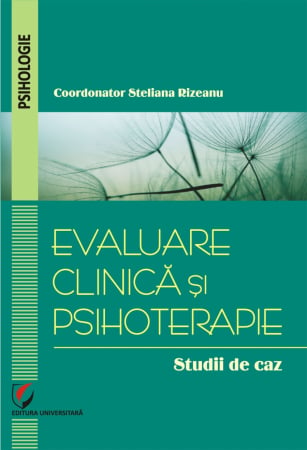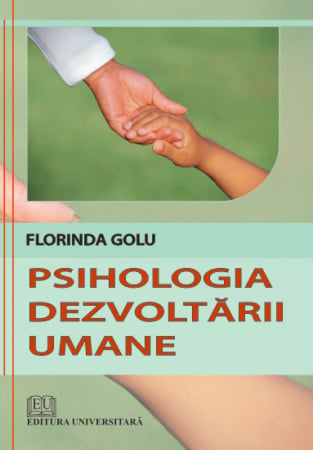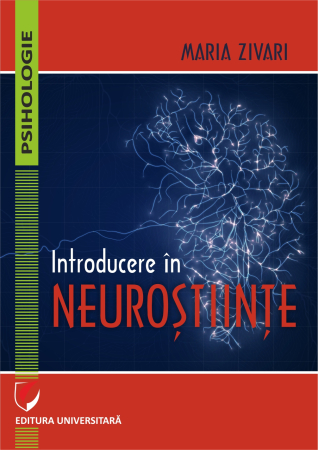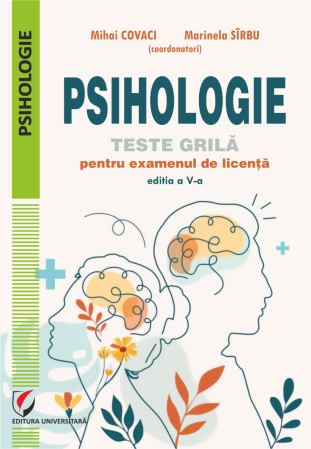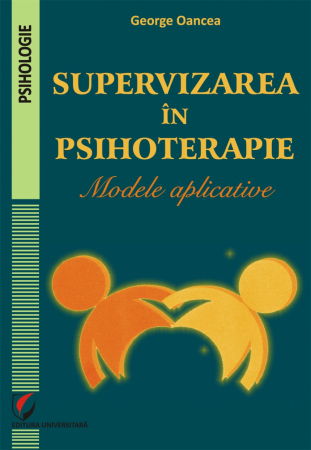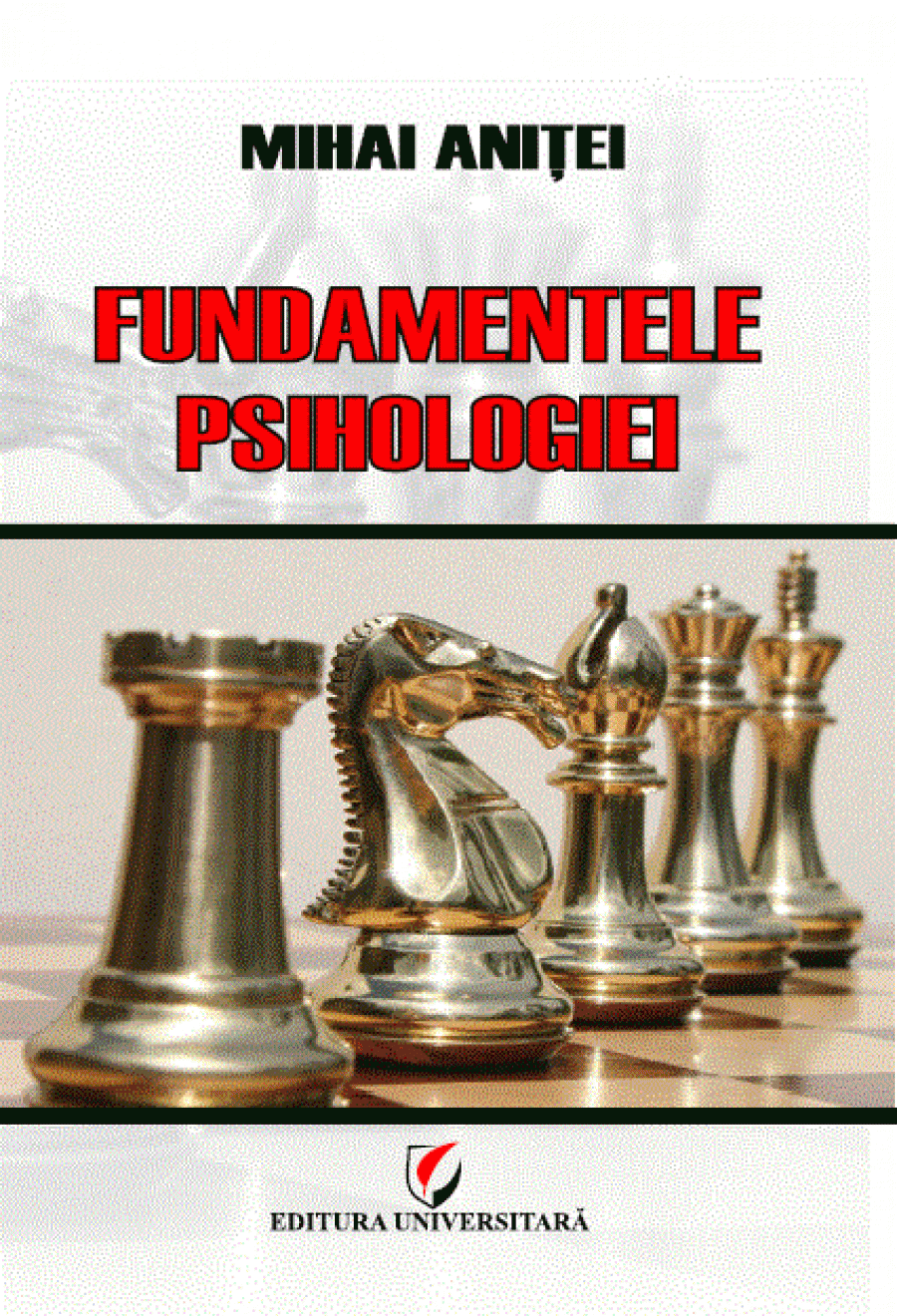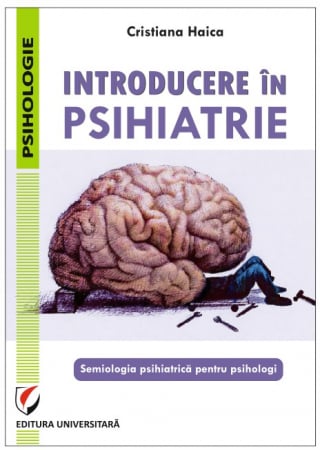Manuscript proposals: [email protected] / 0745 204 115 //// Tracking orders Individuals / Sales: 0745 200 357 / Orders Legal entities: 0721 722 783
6359.png) Emotional regulation and counseling of children and adolescents. Psycho-pedagogical studies and research
Emotional regulation and counseling of children and adolescents. Psycho-pedagogical studies and research
6359.png)
Publisher: Editura Universitară
Author: coord. Rodica Gabriela Enache
Edition: I
Pages: 228
Publisher year: 2024
ISBN: 978-606-28-1861-6
DOI: 10.5682/9786062818616
Product Code:
9786062818616
Do you need help?
0745 200 357
- Description
- Download (1)
- Authors
- Content
- More details
- Reviews (0)
The development of emotional and social skills is an important resource for the mental health of children and adolescents and for their ability to adapt to life's challenges.
The work is addressed to parents interested in the emotional development of children and adolescents, school counselors, teachers and future specialists in psychology or education sciences who can consult a synthesis of theoretical guidelines regarding emotional life and ways of psychological counseling of students with emotional problems or disorders of neurodevelopment as well as some clinical studies and psycho-pedagogical research.
The work is addressed to parents interested in the emotional development of children and adolescents, school counselors, teachers and future specialists in psychology or education sciences who can consult a synthesis of theoretical guidelines regarding emotional life and ways of psychological counseling of students with emotional problems or disorders of neurodevelopment as well as some clinical studies and psycho-pedagogical research.
-
Emotional regulation and counseling of children and adolescents. Psycho-pedagogical studies and research
Download
RODICA GABRIELA ENACHE - Coordinator
INTRODUCTION / 9
CHAPTER I
AFFECTIVE PROCESSES AND EMOTIONAL REGULATION / 11
Rodica Gabriela Enache
I.1. Psychological characterization of affective processes / 11
I.2. Theories of emotions and emotional intelligence / 14
I.2.1. Attachment theory / 14
I.2.2. The intellectualist theory of emotions / 16
I.2.3. Physiological theories of emotions / 16
I.2.4. Central theories of emotions / 17
I.2.5. Theories regarding the development of emotional intelligence / 18
I.2.6. Socio-cultural theories of emotions / 24
I.3. Peculiarities of socio-emotional behaviors in preschoolers and young schoolchildren / 28
I.4. The dynamics of affective processes in preadolescents and adolescents / 30
I.5. Counseling of children and adolescents with internalizing or externalizing disorders / 39
Bibliography / 43
CHAPTER II
SPEECH AND THERAPEUTIC INTERVENTION FOR CHILDREN WITH NEURODVELOPMENTAL DISORDERS. CASE STUDIES / 48
Andreea Coman and Violeta Cizmașu
II.1. Neurodevelopmental disorders - characteristics and classification / 48
II.2. Therapeutic interventions in autistic spectrum disorders in children / 52
II.3. Models of assessment and therapeutic intervention. Case studies / 55
II.4. Conclusions / 73
Bibliography / 75
CHAPTER III
THE IMPACT OF ANXIETY DISORDERS ON THE SOCIAL BEHAVIOR OF YOUNG SCHOOLCHILDREN / 77
Crușoveanu Maria Andreea and Rodica Gabriela Enache
III.1. Definition and characteristics of anxiety disorders in young schoolchildren / 77
III.2. Separation anxiety / 81
III.3. Generalized anxiety / 83
III.4. Social phobia and panic disorder / 85
III.5. Specific phobias / 88
III.6. The goals and specific stages of the activity of psychological assessment and psychotherapy of children with anxiety disorders. / 89
III.7. Study on anxiety disorders in children / 94
Bibliography / 122
CHAPTER IV
THE IMPACT OF THE PARENT-CHILD RELATIONSHIP ON THE EMOTIONAL STATES AND SOCIAL RELATIONSHIPS OF THE CHILDREN. CASE STUDIES / 129
Andra Brahariu, Irina Mardar, Rodica Gabriela Enache
IV.1. The relationship between fear and anxiety / 129
IV.2. Forms of anxiety in children / 133
IV.3. Factors associated with anxiety disorders in children / 135
IV.4. Study on psychological intervention in cases of anxiety in children / 136
IV.5. Case studies / 138
Bibliography / 144
CHAPTER V
THE RELATIONSHIP BETWEEN STRESS AND COPING MECHANISMS IN ADOLESCENTS / 146
Florentina Bătăriă, Alina Ciobanu, Raluca Oancea
V.1. Stress and coping mechanisms - theoretical foundation / 146
V.2. Peculiarities of coping mechanisms in adolescents / 150
V.3. Study on the relationship between stress and coping mechanisms in adolescents / 153
V.3.1. Objectives, assumptions / 153
V.3.2. Definition and operationalization of key concepts / 154
V.3.3. The studied population, sampling / 154
V.3.4. Research methods, tools / 155
V.3.5. Research results / 156
Bibliography / 182
CHAPTER VI
PSYCHOLOGICAL AND SOCIAL IMPLICATIONS OF AGGRESSIVE BEHAVIORS IN THE EDUCATIONAL ENVIRONMENT (BULLYING AND CYBER-BULLYING) / 187
Andra Brahariu
VI.1. Definitions and types of aggressive behaviors in the educational environment / 187
VI.2. Prevalence of bullying and cyber-bullying / 190
VI.3. The effects of cyber-bullying / 196
VI.4. Risk and protective factors for prevention and management / 200
VI.5. Psycho-pedagogical intervention approaches and strategies / 201
VI.6. Study on the psychological and social implications of cyberbullying in the educational environment from grades V-XII in Constanța county in the year 2023 / 202
Bibliography / 218
CHAPTER I
AFFECTIVE PROCESSES AND EMOTIONAL REGULATION / 11
Rodica Gabriela Enache
I.1. Psychological characterization of affective processes / 11
I.2. Theories of emotions and emotional intelligence / 14
I.2.1. Attachment theory / 14
I.2.2. The intellectualist theory of emotions / 16
I.2.3. Physiological theories of emotions / 16
I.2.4. Central theories of emotions / 17
I.2.5. Theories regarding the development of emotional intelligence / 18
I.2.6. Socio-cultural theories of emotions / 24
I.3. Peculiarities of socio-emotional behaviors in preschoolers and young schoolchildren / 28
I.4. The dynamics of affective processes in preadolescents and adolescents / 30
I.5. Counseling of children and adolescents with internalizing or externalizing disorders / 39
Bibliography / 43
CHAPTER II
SPEECH AND THERAPEUTIC INTERVENTION FOR CHILDREN WITH NEURODVELOPMENTAL DISORDERS. CASE STUDIES / 48
Andreea Coman and Violeta Cizmașu
II.1. Neurodevelopmental disorders - characteristics and classification / 48
II.2. Therapeutic interventions in autistic spectrum disorders in children / 52
II.3. Models of assessment and therapeutic intervention. Case studies / 55
II.4. Conclusions / 73
Bibliography / 75
CHAPTER III
THE IMPACT OF ANXIETY DISORDERS ON THE SOCIAL BEHAVIOR OF YOUNG SCHOOLCHILDREN / 77
Crușoveanu Maria Andreea and Rodica Gabriela Enache
III.1. Definition and characteristics of anxiety disorders in young schoolchildren / 77
III.2. Separation anxiety / 81
III.3. Generalized anxiety / 83
III.4. Social phobia and panic disorder / 85
III.5. Specific phobias / 88
III.6. The goals and specific stages of the activity of psychological assessment and psychotherapy of children with anxiety disorders. / 89
III.7. Study on anxiety disorders in children / 94
Bibliography / 122
CHAPTER IV
THE IMPACT OF THE PARENT-CHILD RELATIONSHIP ON THE EMOTIONAL STATES AND SOCIAL RELATIONSHIPS OF THE CHILDREN. CASE STUDIES / 129
Andra Brahariu, Irina Mardar, Rodica Gabriela Enache
IV.1. The relationship between fear and anxiety / 129
IV.2. Forms of anxiety in children / 133
IV.3. Factors associated with anxiety disorders in children / 135
IV.4. Study on psychological intervention in cases of anxiety in children / 136
IV.5. Case studies / 138
Bibliography / 144
CHAPTER V
THE RELATIONSHIP BETWEEN STRESS AND COPING MECHANISMS IN ADOLESCENTS / 146
Florentina Bătăriă, Alina Ciobanu, Raluca Oancea
V.1. Stress and coping mechanisms - theoretical foundation / 146
V.2. Peculiarities of coping mechanisms in adolescents / 150
V.3. Study on the relationship between stress and coping mechanisms in adolescents / 153
V.3.1. Objectives, assumptions / 153
V.3.2. Definition and operationalization of key concepts / 154
V.3.3. The studied population, sampling / 154
V.3.4. Research methods, tools / 155
V.3.5. Research results / 156
Bibliography / 182
CHAPTER VI
PSYCHOLOGICAL AND SOCIAL IMPLICATIONS OF AGGRESSIVE BEHAVIORS IN THE EDUCATIONAL ENVIRONMENT (BULLYING AND CYBER-BULLYING) / 187
Andra Brahariu
VI.1. Definitions and types of aggressive behaviors in the educational environment / 187
VI.2. Prevalence of bullying and cyber-bullying / 190
VI.3. The effects of cyber-bullying / 196
VI.4. Risk and protective factors for prevention and management / 200
VI.5. Psycho-pedagogical intervention approaches and strategies / 201
VI.6. Study on the psychological and social implications of cyberbullying in the educational environment from grades V-XII in Constanța county in the year 2023 / 202
Bibliography / 218
Regardless of the family model in which they were raised: the traditional family or the modern family, the single-parent family, the mixed family or the reconstituted family, children and adolescents in contemporary society feel the need to be counseled in managing emotional and behavioral problems. Considering the fact that most disorders have their onset in childhood or adolescence or in the young adult stage, rigorous research is needed to identify the prevalence of mental disorders at this age, with the aim of developing programs for prevention and psychological, social and educational intervention.
Emotional regulation is the process by which the adolescent or young person monitors, evaluates and restructures his way of thinking, experiences and emotional experiences in order to adapt to difficult life situations and achieve his personal and professional goals in the future, in adulthood.
In this way, borderline situations can be prevented in which teenagers act impulsively and their emotional experiences are associated with suicidal thoughts and attempts, risky behaviors, consumption of alcohol or other psychoactive substances.
The psycho-educational approach has an essential role in cultivating resilience in children and adolescents. Thus, this approach becomes extremely relevant because it provides them with the necessary tools to face difficult situations and build a solid foundation in terms of personal and social development. (Smith J.A., 2020, p.66-70)
The present work includes an introductory chapter in which the emotional processes and the importance of developing the ability to regulate emotions in children and adolescents are described, and five psycho-pedagogical studies carried out by psychologists with the right to practice freely, master's students of the Personality Psychodiagnosis Study Program at the University " Ovidius" from Constanța, Faculty of Psychology and Educational Sciences, interested in optimizing the socio-emotional skills of children and adolescents and counseling them.
Emotional regulation is an essential aspect of emotional and mental health, as it allows children and adolescents new ways to respond appropriately and constructively to the various challenges and circumstances of life.
The work is addressed to parents, teachers and school counselors but also to psychology students and future specialists who can discover not only a synthesis of theoretical guidelines regarding the ways of psychological counseling of students with emotional problems, but also clinical studies or experimental research.
In conclusion, in the psycho-educational approach the capacity for emotional self-regulation and resilience are involved in the development of a complex set of skills that allow children and adolescents to face the challenges of life in contemporary society. These aspects can be developed and strengthened through appropriate psycho-educational interventions, social support and practices of self-knowledge and personal growth.
Authors
Emotional regulation is the process by which the adolescent or young person monitors, evaluates and restructures his way of thinking, experiences and emotional experiences in order to adapt to difficult life situations and achieve his personal and professional goals in the future, in adulthood.
In this way, borderline situations can be prevented in which teenagers act impulsively and their emotional experiences are associated with suicidal thoughts and attempts, risky behaviors, consumption of alcohol or other psychoactive substances.
The psycho-educational approach has an essential role in cultivating resilience in children and adolescents. Thus, this approach becomes extremely relevant because it provides them with the necessary tools to face difficult situations and build a solid foundation in terms of personal and social development. (Smith J.A., 2020, p.66-70)
The present work includes an introductory chapter in which the emotional processes and the importance of developing the ability to regulate emotions in children and adolescents are described, and five psycho-pedagogical studies carried out by psychologists with the right to practice freely, master's students of the Personality Psychodiagnosis Study Program at the University " Ovidius" from Constanța, Faculty of Psychology and Educational Sciences, interested in optimizing the socio-emotional skills of children and adolescents and counseling them.
Emotional regulation is an essential aspect of emotional and mental health, as it allows children and adolescents new ways to respond appropriately and constructively to the various challenges and circumstances of life.
The work is addressed to parents, teachers and school counselors but also to psychology students and future specialists who can discover not only a synthesis of theoretical guidelines regarding the ways of psychological counseling of students with emotional problems, but also clinical studies or experimental research.
In conclusion, in the psycho-educational approach the capacity for emotional self-regulation and resilience are involved in the development of a complex set of skills that allow children and adolescents to face the challenges of life in contemporary society. These aspects can be developed and strengthened through appropriate psycho-educational interventions, social support and practices of self-knowledge and personal growth.
Authors
If you want to express your opinion about this product you can add a review.
write a review

![Emotional regulation and counseling of children and adolescents. Psycho-pedagogical studies and research [0] Emotional regulation and counseling of children and adolescents. Psycho-pedagogical studies and research [0]](https://gomagcdn.ro/domains/editurauniversitara.ro/files/product/medium/reglarea-emotionala-si-consilierea-copiilor-si-adolescentilor-studii-si-cercetari-psiho-pedagogice-223126.jpg)
![Emotional regulation and counseling of children and adolescents. Psycho-pedagogical studies and research [1] Emotional regulation and counseling of children and adolescents. Psycho-pedagogical studies and research [1]](https://gomagcdn.ro/domains/editurauniversitara.ro/files/product/medium/reglarea-emotionala-si-consilierea-copiilor-si-adolescentilor-studii-si-cercetari-psiho-pedagogice-102076.jpg)
![Emotional regulation and counseling of children and adolescents. Psycho-pedagogical studies and research [1] Emotional regulation and counseling of children and adolescents. Psycho-pedagogical studies and research [1]](https://gomagcdn.ro/domains/editurauniversitara.ro/files/product/large/reglarea-emotionala-si-consilierea-copiilor-si-adolescentilor-studii-si-cercetari-psiho-pedagogice-223126.jpg)
![Emotional regulation and counseling of children and adolescents. Psycho-pedagogical studies and research [2] Emotional regulation and counseling of children and adolescents. Psycho-pedagogical studies and research [2]](https://gomagcdn.ro/domains/editurauniversitara.ro/files/product/large/reglarea-emotionala-si-consilierea-copiilor-si-adolescentilor-studii-si-cercetari-psiho-pedagogice-102076.jpg)

